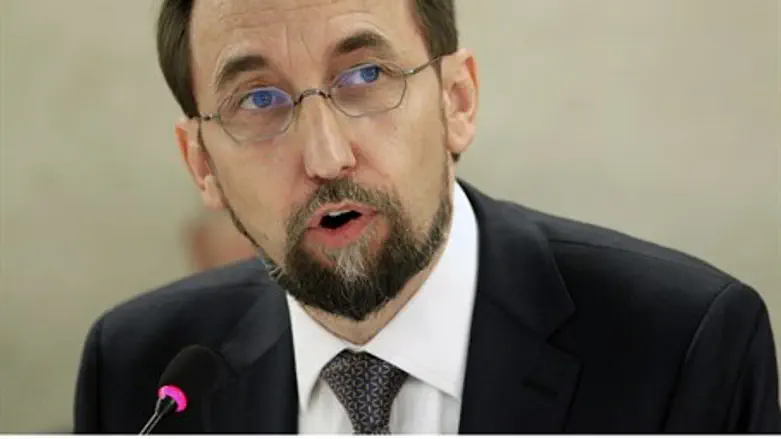
The jihadist terrorists who have seized large swaths of Iraq and Syria are intent upon creating "a house of blood", the UN's new human rights chief said Monday.
In his maiden address to the UN Human Rights Council, Jordan's Prince Zeid Ra'ad Al Hussein lashed out at the Islamic State terrorist group, which has carved out a stronghold and declared a "caliphate" in an area straddling the border of the two conflict-torn nations.
"The Takfiris (extremists) who recently murdered (US journalist) James Foley and hundreds of other defenceless victims in Iraq and Syria, do they believe they are acting courageously, barbarically slaughtering captives?" the Jordanian prince told the opening of the council's 27th session in Geneva.
The massacres, beheadings, rape and torture attributed to IS "reveal only what a Takfiri state would look like, should this movement actually try to govern in the future," said Zaid, the first Muslim and Arab to serve as UN High Commissioner of Human Rights.
"It would be a harsh, mean-spirited house of blood, where no shade would be offered, nor shelter given to any non-Takfiri in their midst," warned the career diplomat.
Annhilation to the rest of humanity
"In the Takfiri mind ... there is no love of neighbor, only annihilation to those Muslims, Christians, Jews and others - altogether the rest of humanity - who believe differently to them," Zaid said.
He urged the world to make halting the "increasingly conjoined conflicts in Iraq and Syria" an "immediate and urgent priority."
IS "has demonstrated absolute and deliberate disregard for human rights," Zaid said, stressing that "the scale of its use of brute violence against ethnic and religious groups is unprecedented in recent times."
He warned that attacks by the group motivated by ethnic background or religious beliefs may constitute "a crime against humanity, for which those responsible must be held accountable."
Zaid's speech to the UN's 47-member council came a week after it held an emergency session on the jihadists, deciding to send a fact-finding mission to Iraq to document the extent of their abuses.
Beyond the jihadist threat, the new human rights chief listed a range of other topics to be addressed during the three-week council session.
Zaid continued the legacy of his predecessors by lashing out at Israel, stressing the need "to end persistent discrimination and impunity" in Gaza, where some 2,140 people were killed during the latest conflict.
Around half of those killed were terrorists, making the IDF's civilian-to-combatant casualty rate an unprecedentedly low 1:1. That, however, was not enough for Zaid.
"Current and future generations of Palestinians ... have a right to live normal lives in dignity: without conflict, without a blockade, indeed without the wide range of daily human rights infringements that are generated by military occupation," he said.
Israel's "seven-year blockade must end," he said, also insisting on the right of Israelis to live "free and secure from indiscriminate rocket fire."
Zaid also highlighted the plight of migrants around the world, pointing to the nearly 1,900 who have perished trying to cross the Mediterranean so far this year.
"More must be done by the EU and its member states to deal with this tragic situation," he insisted.
He also charged that Australia's practice of turning back vessels carrying migrants was "leading to a chain of human rights violations, including arbitrary detention and possible torture following return to home countries."
And he expressed concern over reports that the United States had detained some of the more than 50,000 unaccompanied children who have arrived in the past year, "fleeing violence and deprivation" in places like El Salvador, Guatemala and Honduras.
"Human rights are not reserved for citizens only, or for people with visas," Zaid insisted.
Arutz Sheva Staff contributed to this report.
